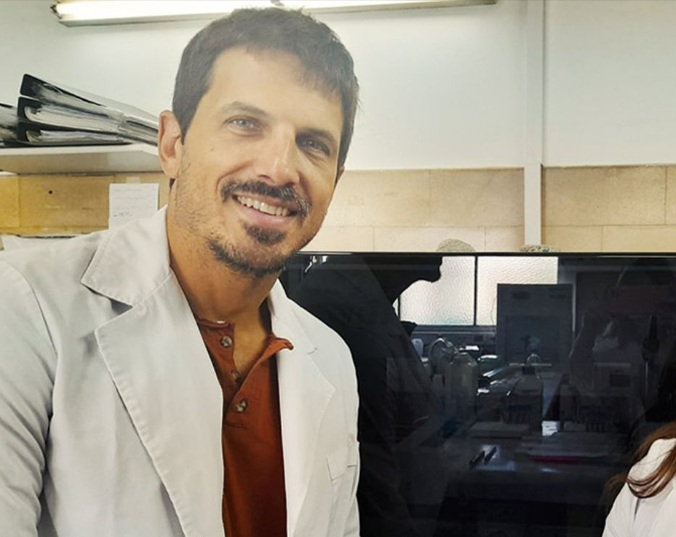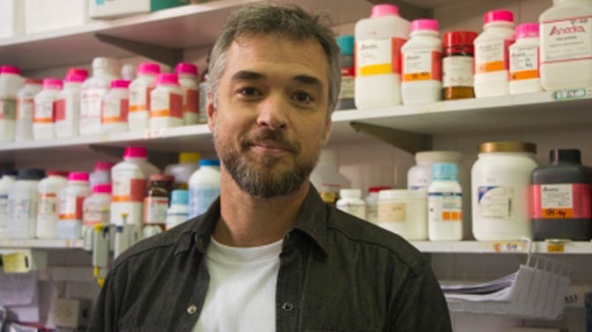Augusto Crespi is an Argentine researcher trained at the National University of San Juan. He also completed his PhD in Biological Sciences at the National University of Comahue and a postgraduate degree in Epistemology and History of Science at the National University Tres de Febrero, both located in Argentina.
Furthermore, the biologist is director of the Patagonian Institute of the Sea (IPAM) at the National University of Patagonia San Juan Bosco. His research focuses on marine invertebrates, marine ecosystems, and diseases such as COVID-19 and Hantavirus.
Crespi: the role of science in his life
Crespi serves as director of the Patagonian Institute of the Sea (IPAM), which was founded by graduates of the National University of Patagonia San Juan Bosco, the institution to which the institute belongs.
At IPAM, the Argentine researcher works to promote science. Crespi is also a professor at the university, teaching courses in epistemology and philosophy of science.
Additionally, he is a member of the National Scientific and Technical Research Council (CONICET) and serves as an associate researcher at the Laboratory of Biological Oceanography (LOBio) of the Center for the Study of Marine Systems (CESIMAR), which is also part of CONICET.
The Laboratory of Biological Oceanography seeks to study marine systems through different disciplines and approaches. Some of its research is related to bioethics and animal welfare.
Crespi’s research is conducted within the Center for the Study of Marine Systems, which aims to carry out studies on oceanic and coastal ecosystems for a better understanding of them.
At the laboratory, Crespi studies the ecology of marine invertebrates, particularly cephalopods. These are a class of marine mollusks that include species such as octopuses and squids.
Crespi’s research
Throughout his professional career, Crespi has conducted research related to the environment and its conservation, renewable natural resources, and marine environments.
He also analyzes how terrestrial and marine environments interact in Patagonia. Regarding his research lines, Crespi has developed several.
The first is linked to bioethics and his work as part of the Institutional Committee for the Care and Use of Animals in Experimentation.
Bioethics studies human behavior in relation to life and health, focusing on how humans treat living beings. The Institutional Committee for the Care and Use of Animals in Experimentation is responsible for supervising scientific and research activities involving animals.
Specifically regarding marine invertebrates, Crespi emphasizes the responsibility of human actions involving these organisms in experimental contexts.
The Argentine researcher also studies how atmospheric dust affects marine ecosystems and its connection to the biotechnology industry.
Atmospheric dust is defined as the accumulation of tiny solid or liquid particles suspended in the atmosphere. These particles affect not only humans and daily life but also the environment and various ecosystems, including marine ones. Crespi studies how this dust particularly impacts microalgae.
Another line of research led by Crespi focuses on human beings and the diseases that may affect them, such as COVID-19 and Hantavirus.
Regarding COVID-19, Crespi and the institute he leads are part of the research on “Echa Marine,” a dietary supplement. In relation to Hantavirus, the Argentine researcher develops training and insertion programs (PFI) focused on the disease.
Marine ecosystems
Research on the environment, its conservation, and sustainability is essential due to the constant interactions between humans and surrounding ecosystems.
In terms of marine ecosystems, it is crucial to study them not only because of their close relationship with the economy and the fishing industry but also due to their role in climate regulation and the presence of diverse organisms.
Various studies aim to promote awareness of the importance of marine flora and fauna, their link to planetary health, and their broader ecological roles.
Regarding the study of marine ecosystems, Crespi stands out not only as the director of the Patagonian Institute of the Sea but also for the development of his multiple lines of research.
His work connects marine ecosystems—especially marine invertebrates—with health and medical issues, bridging environmental and human concerns through scientific investigation.




